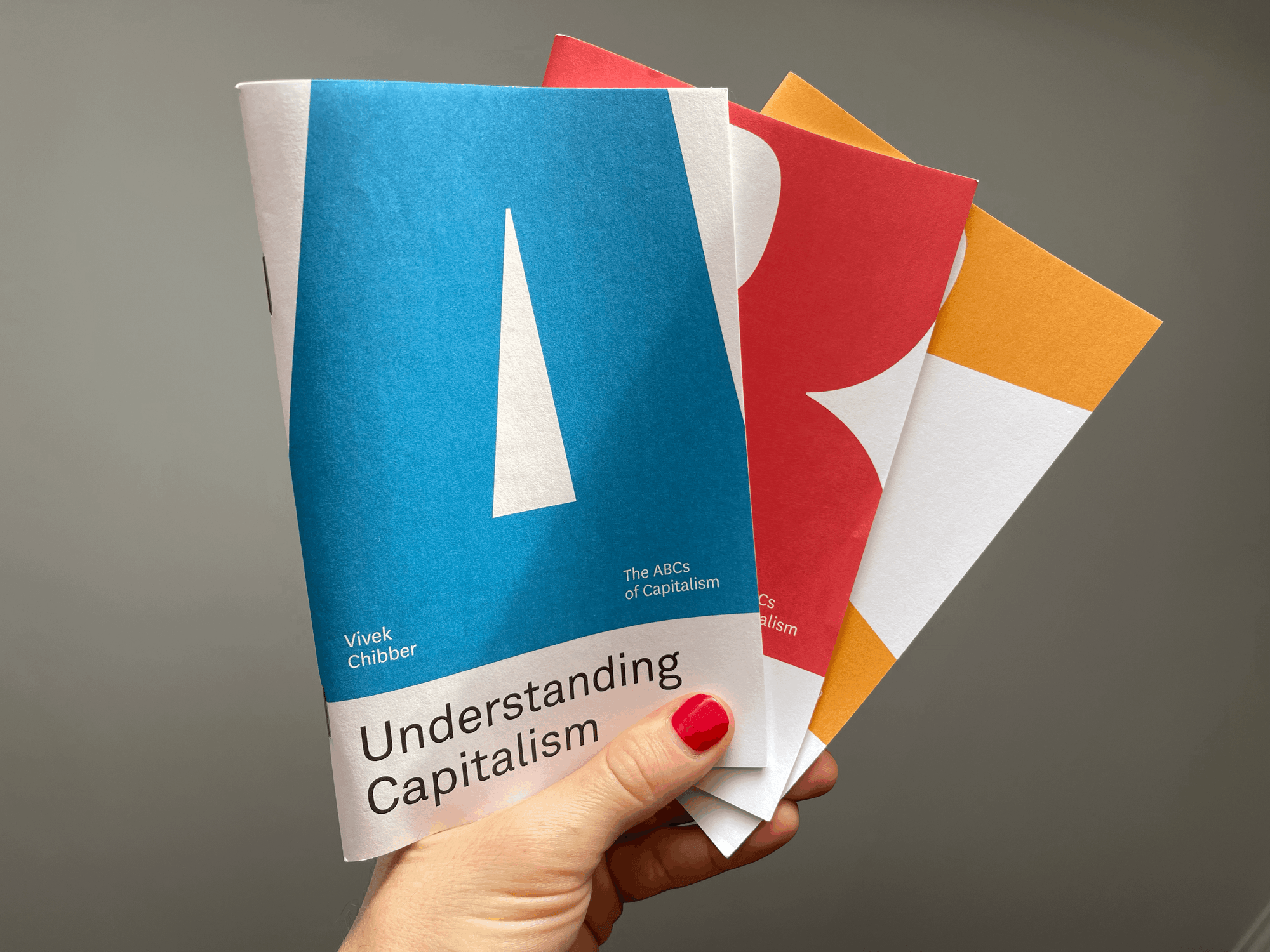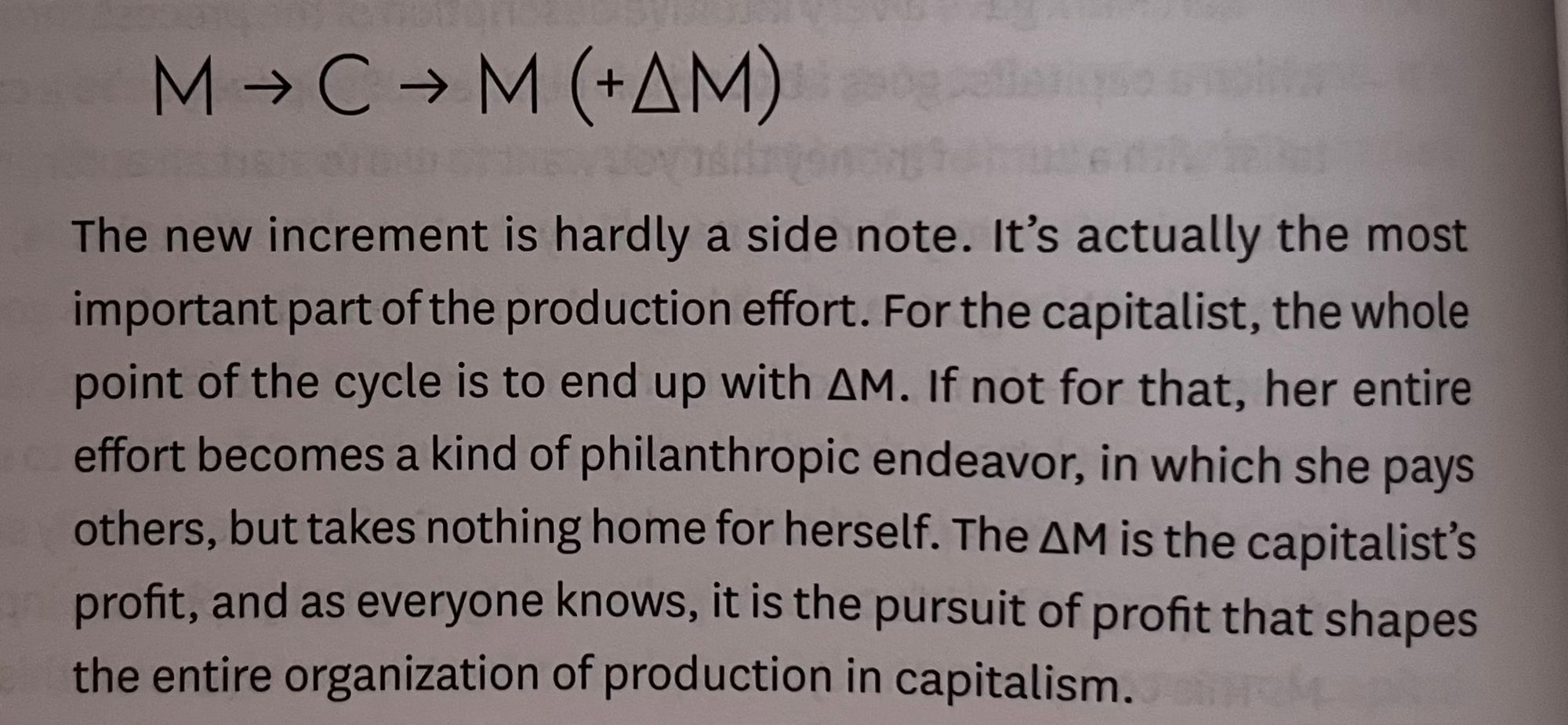The ABCs of Capitalism by Vivek Chibber (via Jacobin)

The problem is the system, and if we're going to do anything to make the situation better, it is important to understand how that system works. A7
A great 3-part write up on capitalism and the way it shapes modern western societies. The first book covers many "basics" and therories.

A key part of the writing that resonated with me as I was reading about burnout, is the concept of insecurity. I can definitely feel the pressure cooker on a daily basis, such as the necessicity to keep a job, which are largely driven by market forces pushing idividuals to consume. It also leaves me a lot to think about my role working in tech, and how it contributes to maintaining the pressure of insecurity.
What this means, in essence, is that capitalism not only depends on the creation of mass insecurity, but reproduces that very insecurity as part of its lifeblood. Or, to put it differently, precarious employment is built into the system. A30
The mainstream promise - that if you work hard and play by the rules, you will make it to the top - is simply a lie. [...] The promise is that if you abide by these rules, you will be rewarded with the good life. And this promise is based on a very simple premise - that there is a link between effort and reward. If you work hard, the hard work will pay off. But the secret to capitalism is that there is no reliable connection between effort and reward. […] What determines people's economic fate in capitalism is not their effort, but their power. And employers always have more power than workers. A35-37
An interesting point is one that doesn't place the business owner making their choices from a place of being bad or evil, they are subject to the structures as well.
Capitalists don’t undermine their employees' wellbeing because they are mean, greedy or callous. They do it because this is how they keep themselves afloat, and how they grow. As long as firms compete on the market, their owners and managers will be punished if they don't squeeze the most out of their labor force. So they do what they have to, and its most natural result is that their profits come at considerable cost to their employees. A37
The are two fronts to the battle: the choices we make as individuals, and advocating as groups for state policies and protections from the government.
The only viable solution is a collective one. The most direct avenue is through organizations that enable collective action. Workers find that making demands individually isn't feasible because one employee is easy to replace. But replacing ten is harder and a hundred harder still. […] The other way in which workers have been able to find collective solutions is more indirect - through state policy and protection. Instead of getting basic goods by negotiating for more money with the boss, they can acquire them as social rights, from the state. […] Both of these strategies have this in common - they reject the idea that people's fate should be left to how well they do on the labor market. In other words, they refuse to let the market determine our lives. A40-41
The second pamphlet speaks to the power levers of capitalism.
Capitalists rely on their property rights to grab most of the revenue that their establishments create. B4
An obvious thought I needed to be reminded of is that there are no such things as ownership and rights as "things", they are just rules by which we collectively decided to play by. That is, we decided to give employers the level of control they have over a large majority of our lives.
In a similar way, thinking about the role of a manager in a company, it isn't just the manager's oppotunity to create better working and living conditions for employees, a collective action is needed where every employee needs to support one another towards a better collective future.
On inequalities baked into capitalism to protect its power and privilege:
Unless some countervailing force is present, government in a capitalist country will tend to reinforce the existing inequalities, rather than try to reduce them; it will protect power and privilege, rather than try to neutralize it; and it will place obstacles in the way of social reform, instead of easing its path. B38
The broader theme, explored in the third pamphlet, is about work being at the centre of the playing field for better livelihoods for people.
Our power to achieve progress toward a more humane society still rides on the power of working people. C34
On the importance of dignity and respect for all (The End of Burnout speaks to this in regards to work too):
One of the most important components of solidarity is mutual respect. Each person has to feel that they are valued and their dignity recognized by the people with whom they are joined in struggle. But if this is to be so, racial, gender, caste, or ethnic hierarchies cannot be tolerated within labor organizations. […] In a labor force that is now almost fifty percent female, and more than one-third non-white, tackling the prevalence of racial and gender hierarchies is not a luxury or a distraction - it is one of the most important preconditions for effective labor organizing. C28
The pamphlets focus on societal changes, and make the point that as a society we need to move beyond capitalism, I think there are many points here for modern workplaces to pull on here to provide a work environment that takes a step towards bettering the livelihoods of all.
In particular, the pamphlet speaks to culture of democracy which requires that:
- Organizational decisions are taken only after a thorough debate among the members. This is critical because if members feel that decisions are being taken without their input, that they are just being given marching orders without any regard to their views […] But if decisions are undertaken after an open and honest debate, membe much more committed to them, even if they might feel un with the decision itself. C29-30
- Mechanisms are in place to hold the leadership accountable. Obviously, any organization in which leaders are immune to discipline will not only fail in eliciting members' enthusiasm, but will very likely degenerate over time. C30
- Member participation has to extend to as many parts of the organization as possible. […] The best organizations encourage constant debate and discussion, not just when important decisions are being taken, but on an everyday basis, on all facets of political life - where the organization is going, what its strategy ought to be, how it conducts itself, what its agenda might be, etc. C30